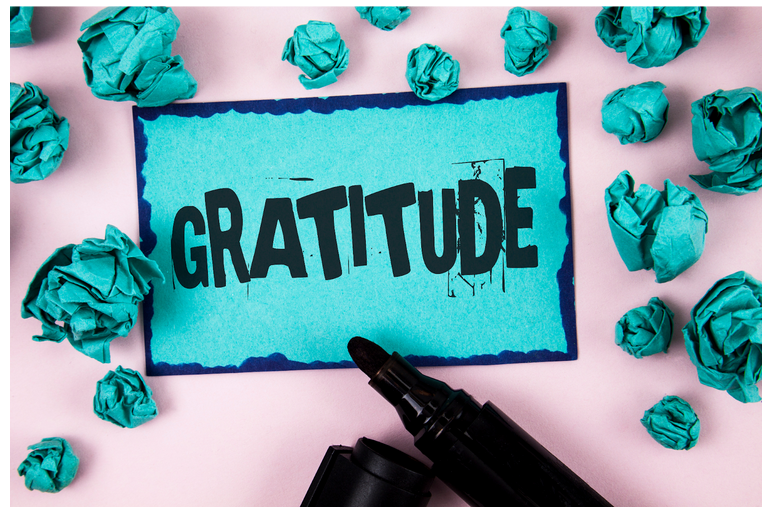
Over the last decade, clinicians and peers alike have championed mindfulness practices as a game-changing addition to evidence-based addiction treatment. Whether you’re in residential rehab, a sober-living home, or browsing an online recovery shop for new meditation tools, learning to ground yourself in the present moment can shrink cravings, quiet racing thoughts, and lower relapse risk. Research shows that even brief daily sessions calm the nervous system, improve mental health, and restore balance between body and mind. This guide breaks down the neuroscience, shares field-tested mindfulness techniques, and answers common questions so you can seamlessly integrate mindful awareness into every step of your personal recovery journey—from early detox to long-term maintenance.
Understanding Mindfulness
At its core, mindfulness is the art of placing deliberate, non-judgmental attention on the present moment—notice the inhale, the flutter of emotion, the tightening in a shoulder—without rushing to fix, flee, or label it. While the concept stems from ancient contemplative lineages, modern clinicians have translated it into practical, evidence-based mindfulness exercises: focused-breath counts, five-minute body scans, even mindful dish-washing. These teachable mindfulness techniques strengthen the brain’s prefrontal cortex, boosting emotional regulation and buffering against stress-driven impulses that often sabotage addiction recovery. Repeated practice rewires neural pathways, improving both mental health and, through lower cortisol and blood pressure, overall physical and mental health. Whether you explore structured mindfulness-based interventions in therapy or simply practice mindfulness for a minute between meetings, the skill is portable, scalable, and free—an inner toolkit you can access anytime cravings or anxiety disorders flare.
The Connection Between Mindfulness and Addiction Recovery
Self-Awareness:
Regular sessions of mindfulness meditation train the brain to watch cravings, thoughts, and body sensations arise and fade—just passing weather in the sky of the present moment. Instead of rushing to numb or obey an urge, you label it (“tight chest,” “need a drink,” “fear”) and keep breathing. That pause injects choice into the reflex loop that once propelled compulsive alcohol consumption or other substance abuse. Over time these micro-moments of observation strengthen neural pathways for impulse control and emotional regulation, creating a sturdy buffer between external trigger and internal reaction. In practical terms, heightened self-awareness lets you reach for coping skills—calling a sponsor, sipping non alcoholic drinks, reciting a mantra—before old habits hijack your recovery journey.
Emotional Regulation:
Consistent mindfulness practices—from two-minute breath counts to evening body scans—teach the nervous system to decelerate fight-or-flight reactions. Neuro-imaging shows reduced amygdala firing and stronger prefrontal networks, the very wiring that governs deliberate emotional regulation. People in addiction recovery report fewer anger flashes, gentler mood swings, and a notable drop in baseline anxiety—even when co-occurring anxiety disorders are present. This steadier emotional climate elevates overall mental health and creates the mental bandwidth needed to make sober, values-aligned choices throughout the entire recovery journey.
Stress Reduction:
Scientific trials confirm that even brief mindfulness practices—a dozen slow breaths or a three-minute body scan—shift the body into parasympathetic gear. Anchoring attention in the present moment lowers cortisol, steadies heart rate, and can improve both blood-pressure readings and overall physical and mental health. For people in addiction recovery, this physiological calm is gold: when deadlines, family drama, or social triggers hit, they’re far less likely to default to old substance abuse patterns. Instead, the brain—primed by practice—accesses calmer coping strategies such as mindful walking, guided imagery, or a quick gratitude list. Over time, these healthier stress responses weave themselves into daily routine, reinforcing resilience and safeguarding long-term recovery.

Mindfulness-Based Relapse Prevention (MBRP)
Developed at the University of Washington, MBRP is an eight-week curriculum that blends classic cognitive-behavioral relapse tools with cutting-edge mindfulness based interventions. In each session clients learn to surf “urge waves”: they feel the tightening chest, label the thought, and steady themselves with slow, mindful breathing instead of reaching for a drink. Coursework includes trigger mapping, values clarification, and at-home mindfulness exercises guided by audio recordings.
Randomized trials show that participants experience significantly lower relapse rates than those in treatment-as-usual, with the biggest gains seen in people managing co-occurring anxiety disorders. The program’s emphasis on moment-to-moment awareness, coupled with practical behavioral plans, equips individuals in addiction recovery to choose long-term well-being over short-term relief—making MBRP a powerful adjunct to traditional addiction treatment overseen by qualified mental health professionals.
Practical Mindfulness Techniques for Recovery
Mindful Breathing:
Choose a quiet spot, sit tall, and set a timer for three minutes. Inhale gently through the nose, then lengthen the exhale until your lungs feel comfortably empty. Each slow release signals the nervous system to downshift, rooting you in the present moment. If memories of bar nights or urges to text old drinking buddies appear, simply note “thinking” and escort attention back to the next breath. Practicing mindful breathing this way several times a day is one of the simplest, most portable mindfulness practices available. Over time, these micro-pauses strengthen prefrontal circuits tied to impulse control, giving you an extra beat to choose healthy coping over reflexive alcohol consumption—a small habit with outsized impact on the entire recovery journey.
Body Scan Meditation:
Lie comfortably on your back and close your eyes. Starting at your toes, slowly shift attention upward—notice warmth, tingling, or tightness in each area: feet, calves, thighs, pelvis, abdomen, chest, arms, neck, and scalp. Pause at spots of tension and breathe into them, inviting release. This body scan meditation usually takes 10–20 minutes and deepens interoceptive awareness, helping you sense the earliest physical cues of stress or anxiety before they escalate. In addiction recovery, recognizing a tight jaw or fluttering heart as a signal—rather than immediately reaching for a drink—creates a critical pause for mindful choice. Regular meditation sessions like this fortify the mind-body connection, making it easier to replace automatic alcohol consumption with healthier coping strategies and supporting your long-term recovery journey.
Mindful Walking:
Next time you step outside—whether for a coffee break or a quick errand—transform your stroll into a mindful walking practice. Slow your pace so you truly feel each heel-to-toe roll: the way the pavement gives, how your calves engage, and the subtle shift of weight from one foot to the next. Notice the cool air brushing your face, ambient sounds, or distant traffic hum. Anchored in the present moment, you quiet the chatter of past regrets and future worries, giving your mind a reset in the midst of daily life. For those on an addiction recovery path, this simple mindfulness practice offers a portable tool to interrupt urges, reduce stress, and strengthen mental health—all while you walk.
Daily Mindfulness Practices:
Transform ordinary routines into powerful mindfulness practices by setting gentle reminders on your smartphone every two hours. When the chime sounds, pause whatever you’re doing and take five deep, mindful breaths, noticing the rise and fall of each inhale and exhale. Then name one positive sensation—warmth in your hands, a feeling of calm, or the taste of your coffee—anchoring you in the present moment. Over days and weeks, these bite-sized exercises rewire neural pathways, sharpening mental clarity and smoothing stress peaks. Whether you’re at work, home, or in a meeting, these mini-pauses build resilience and reinforce the emotional regulation skills central to sustained addiction recovery and lifelong well-being.
Benefits of Incorporating Mindfulness in Recovery
Integrating mindfulness practices into your addiction recovery creates profound shifts across body and mind. By training attention away from autopilot rumination, you stabilize mood and strengthen emotional regulation, promoting lasting mental health stability. Physiologically, brief daily mindful breathing and body scans lower resting heart rate, reduce cortisol, and enhance immune system resilience—key markers of improved physical and mental health. Heightened self-awareness lets you catch subtle cues—an urge sparked by stress or passing a bar—before reflexive alcohol consumption or drug use takes hold. Finally, cultivating self-compassion through guided meditations softens shame’s grip, replacing it with kindness and resilience that buffer against relapse and support long-term recovery.
Challenges and Considerations
Although mindfulness practices are low-cost and widely accessible, beginners may encounter unexpected turbulence—restlessness when sitting still or resurfacing trauma memories during deep mindfulness meditation. Without proper framing, these experiences can feel overwhelming or demotivating. To navigate potential pitfalls, work alongside certified mental health professionals or addiction specialists who can tailor mindfulness-based interventions to your personal history and clinical needs. Integrating mindfulness with evidence-based addiction treatment—such as counseling, medication-assisted therapy, or peer-led recovery support groups—ensures balanced progress, safeguards against emotional overload, and maximizes the long-term benefits of cultivating present-moment awareness on your recovery journey.
Conclusion
Integrating mindfulness practices into addiction recovery is far more than a temporary trend—it’s a research-backed pathway to deeper self-awareness, steady emotional regulation, and genuine resilience. Whether you’re newly sober, experimenting with moderation, or years along your recovery journey, grounding yourself in the present moment creates a vital pause between triggers and reactions.
When you pair daily mindfulness techniques—from brief breath counts to evening body scans—with structured addiction treatment, supportive peer networks, and tangible motivators like sobriety tokens, AA pins, or chapters from inspiring recovery books, you build a multi-layered safety net. Over weeks and months, these simple practices rewire neural pathways, making healthy responses second nature. Embrace each mindful breath, and watch sobriety evolve into a lifelong journey of clarity, compassion, and sustained well-being—proof that true healing extends well beyond mere abstinence.
Frequently Asked Questions (FAQs)
Can mindfulness replace traditional addiction treatments?
No. Mindfulness strengthens but does not supplant evidence-based addiction treatment such as counseling, medication, and group support. Use it as an adjunct for comprehensive care.
How long does it take to see benefits from mindfulness practices?
Many people notice reduced stress within two weeks of daily five-minute sessions, though lasting neural changes typically emerge after two to three months.
Do I need a therapist to practice mindfulness?
A therapist is not mandatory, but guidance—through MBRP classes, certified teachers, or trusted apps—helps ensure safety, especially for those with trauma or severe anxiety disorders.
